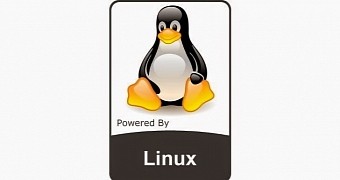So, you want to learn Linux, right? And you need an experienced tutor to point you in the right direction and guide you through your learning process. Well, you've come to the right place! With this article, I'm starting a series of lessons for those of you who want to learn Linux.
As one might expect, I'm going to start from zero, assuming you know absolutely nothing about Linux, GNU/Linux, and any other Linux-related technology. I will continue with how Linux works, how to get a GNU/Linux distribution, how to try a Live CD, how to use certain desktop environments, etc.
In the future, I'll try to write new lessons on a regular basis, one per week, in the editorial section of our website, but I will also try to listen to your requests. If you don't see a lesson of your choice, please tell us and we will do our best to add it to the website. Each article will include real-life situations involving the use of Linux.
The difference between Linux, Linux kernel, and GNU/Linux
Let's begin with the definition of Linux. When you hear your friends talking about Linux but you're too shy to ask them what it is because you're afraid they might laugh, you should know that Linux or Linux kernel is the core component of GNU/Linux operating systems (also known as distributions or distros).
So, again, Linux is the Linux kernel, not an operating system/distribution. Any operating system running a Linux kernel has a name, such as Ubuntu, and you should refer to it with that name instead of Linux. Nobody says "I'm using GNU/Linux." But when one of your friends says, "I'm using Linux and it's fun, you guys should try it!" you should immediately ask, "What distribution do you use?"
You should also know that there are different versions of the Linux kernel, some of them maintained for longer periods of time than others, called LTS versions. The Linux kernel's official website is kernel.org, where you can see all the supported, stable versions, as well as the latest development release.
It's OK to say Linux!
It's OK to say Linux when you talk with other people about Linux, but you should know what exactly you are talking about because Linux can refer to the Linux kernel or a GNU/Linux operating system. You can say, "Yeah, I've tried Linux, and I like it!", but then you add, "I'm using Fedora." But when a friend tells you, "Guys, my phone runs Linux!", then you should know that they refer to the Linux kernel.
Everyone says "Linux" in different conversations, some of them related to a certain distribution, such as Ubuntu, OpenSuSE, Fedora, or Arch Linux. There are thousands of GNU/Linux distributions out there, most of them based on others, but all of them running a Linux kernel. We will discuss GNU/Linux distributions/operating systems in detail in another lesson.
The conclusion of this first lesson is that Linux is, in fact, the Linux kernel, the core component of a GNU/Linux operating system, responsible for allocating a computer's or device's resources to other programs that you run. The Linux kernel also includes all the drivers you need for your hardware.
Below I've attached a very popular video, courtesy of Linux Foundation, that will show you how Linux (a.k.a. Linux kernel) is built, on how many devices Linux is used, and who writes code for the Linux kernel. You should also know that Linux was created by Linus Torvalds. See you again next week for another lesson in Linux.

 14 DAY TRIAL //
14 DAY TRIAL // 